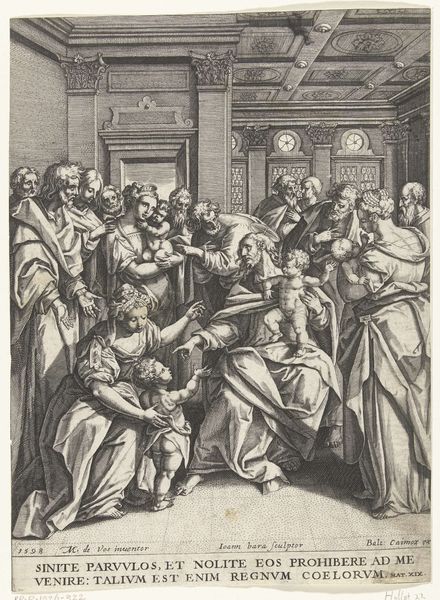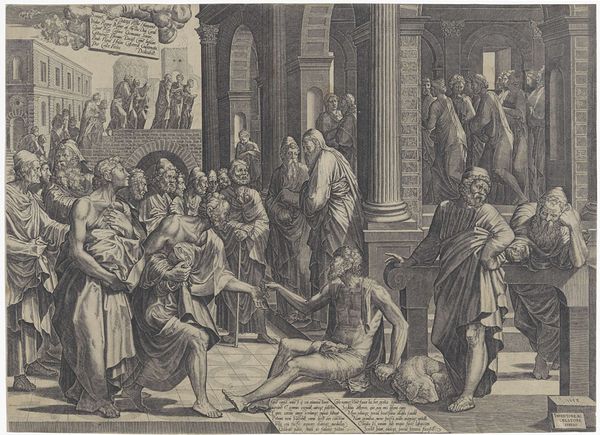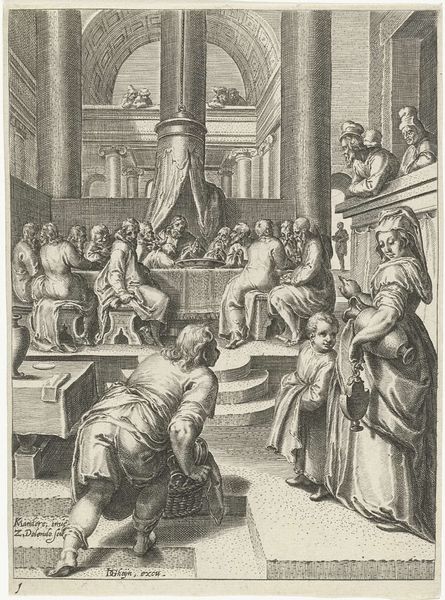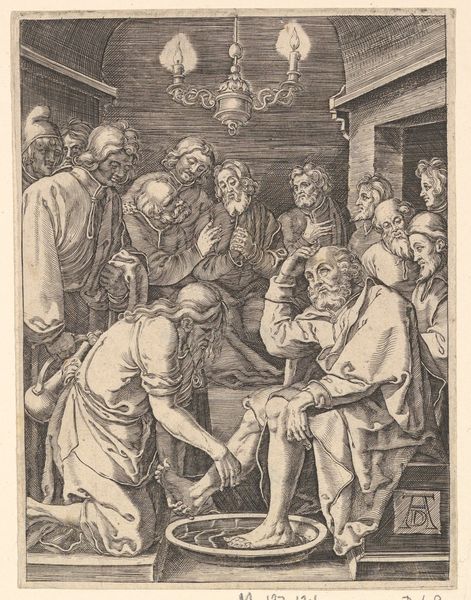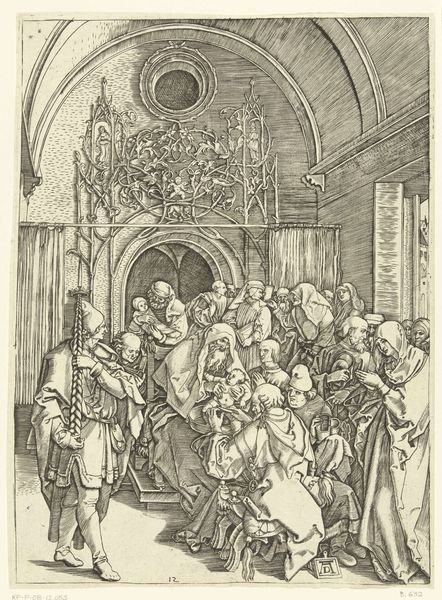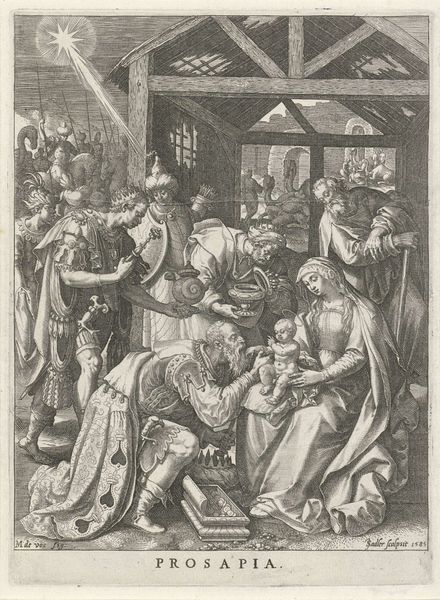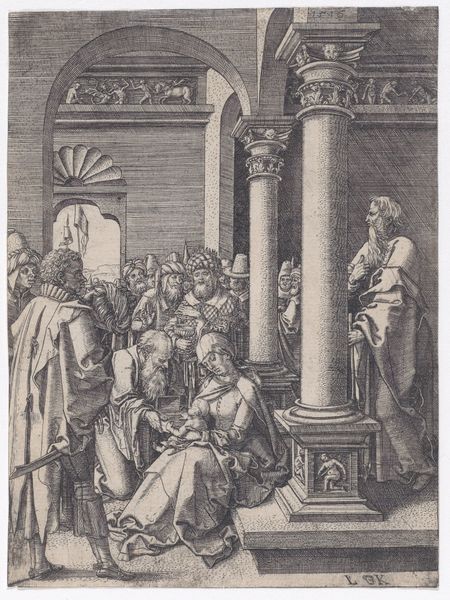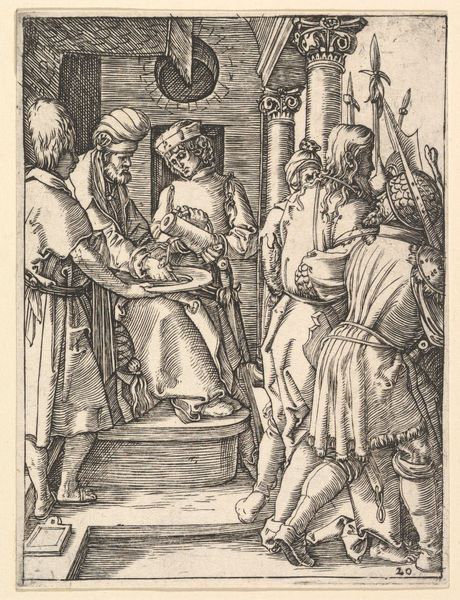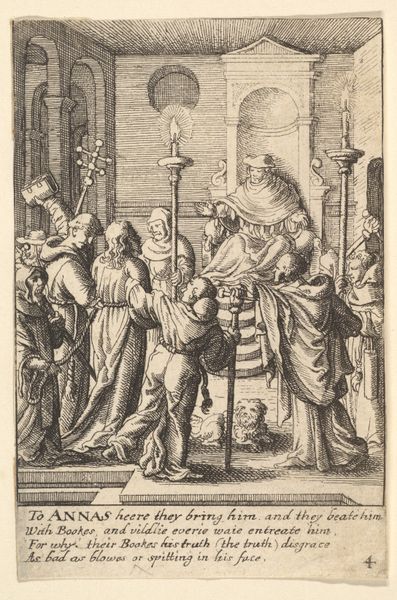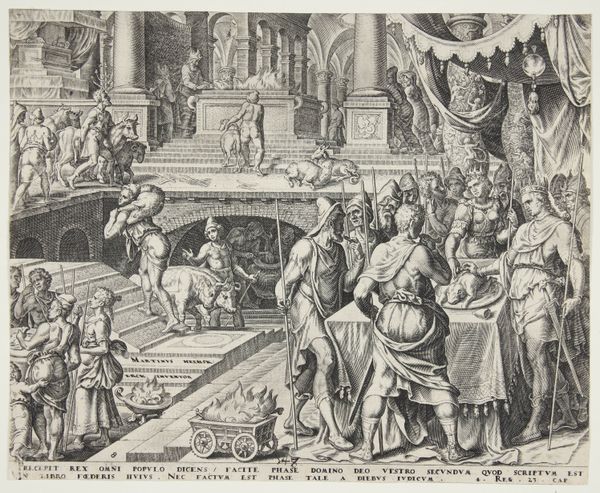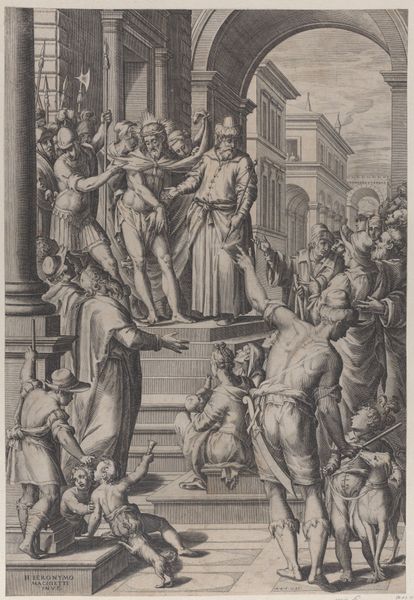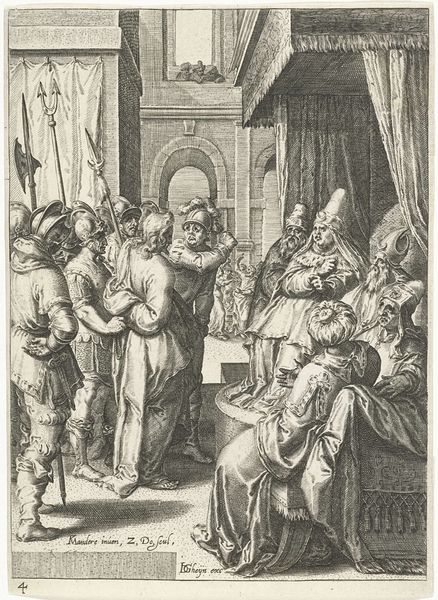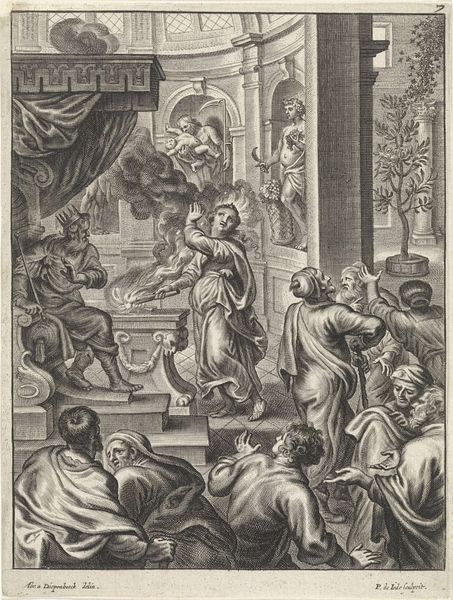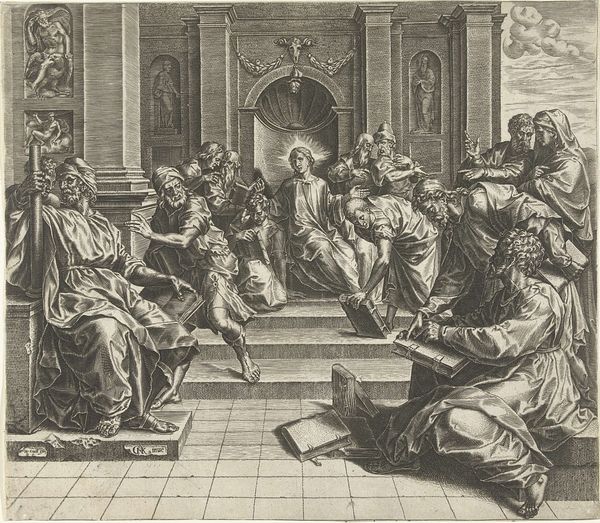
Lodewijk XIII ontvangt een delegatie van kooplieden uit Parijs na zijn terugkeer uit Rochelle, 1629 1629
0:00
0:00
melchiortavernier
Rijksmuseum
print, engraving
#
portrait
#
narrative-art
#
baroque
# print
#
figuration
#
line
#
cityscape
#
history-painting
#
engraving
Dimensions: height 302 mm, width 228 mm
Copyright: Rijks Museum: Open Domain
Melchior Tavernier engraved this image in 1629, depicting Lodewijk XIII receiving merchants from Paris after returning from Rochelle. Central to this scene is the king himself, seated on an elevated throne, a powerful symbol of authority and divine right. Consider how the elevated seat echoes ancient Roman imperial imagery, where the emperor's throne signified his supreme command. The kneeling figures, a gesture of supplication, remind us of similar poses found in religious iconography, where humility before a higher power is paramount. This act of reverence connects the temporal power of the king with the divine authority he claims to embody. But notice the backdrop: a scene of military encampment and naval vessels. This juxtaposition of war and peace, power and supplication, reveals a complex interplay of dominance and dependence. The image is a carefully constructed performance, designed to evoke specific emotions and reinforce the socio-political order of the time. The memory of war is a palpable force, shaping the interactions within the hall. Ultimately, this engraving encapsulates the cyclical nature of power and the recurring motifs that cultures use to represent it. These symbols persist, transformed yet still recognizable, echoing through the corridors of history and resurfacing in our collective consciousness.
Comments
No comments
Be the first to comment and join the conversation on the ultimate creative platform.
